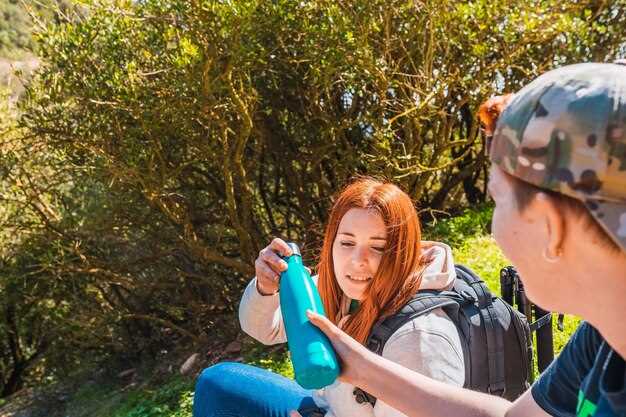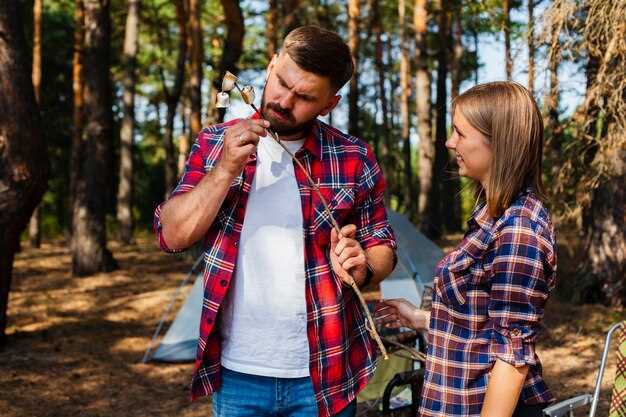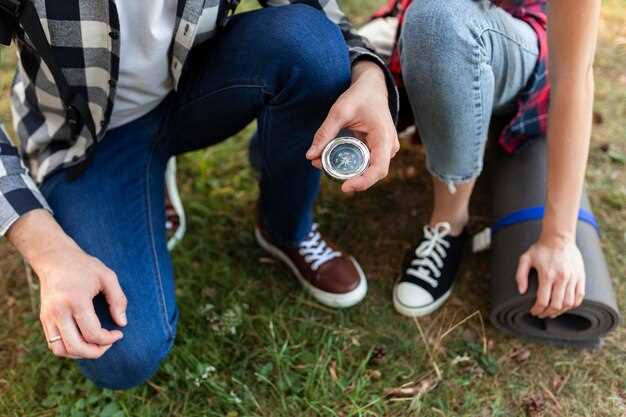
When embarking on a camping adventure, the last thing you want is to attract unwanted attention from wildlife or disturb your fellow campers with strong scents. To maintain balance with nature and create a pleasant atmosphere, it is essential to control your scent. Understanding how to minimize odors can significantly enhance your outdoor experience.
Camping often brings us closer to nature, but it also means we need to be mindful of our impact on the environment. Animals are especially sensitive to scent, which can lead them to your campsite or, worse, compromise your safety. By implementing specific strategies to manage your odors, you can enjoy your time in the great outdoors without worry.
In this article, we will explore practical tips for remaining odorless while camping. From food storage techniques to choosing the right personal care products, these simple steps will help you embrace the wilderness without leaving a trace. Get ready to discover how a little preparation can go a long way in maintaining a scent-free camping experience.
Choosing the Right Camping Gear for Scent Control
When preparing for a camping trip, selecting the appropriate gear is crucial for maintaining hygiene and controlling odors. One of the primary considerations should be the choice of clothing. Opt for moisture-wicking fabrics that not only keep you dry but also help to minimize body odor. Look for garments specifically designed for outdoor activities, as these often incorporate technologies that prevent the build-up of smells.
Footwear is another essential aspect of scent control. Choose hiking boots or shoes made from breathable materials. Consider using odor-fighting insoles to keep your feet fresh throughout your outdoor adventures. Additionally, bring extra pairs of socks to change into daily, as damp socks can lead to unwanted odors.
When it comes to camp cooking, select gear that helps maintain food hygiene. Invest in airtight containers for storing food and snacks to prevent scents from escaping and attracting wildlife. Use non-scented biodegradable soap for washing dishes and utensils to ensure cleanliness without leaving lingering smells.
Personal hygiene tools also play a vital role in controlling odors. Pack unscented wet wipes, a portable toothbrush, and toothpaste to help maintain oral hygiene that can contribute to overall freshness. Additionally, consider using odor-neutralizing sprays or wipes specifically designed for outdoor use.
Ultimately, investing in high-quality camping gear that prioritizes hygiene and effective scent control will greatly enhance your outdoor experience. This precaution will not only keep you comfortable but also minimize your impact on the surrounding environment and wildlife.
Maintaining Personal Hygiene with Limited Resources

Maintaining personal hygiene while camping can be challenging, especially when resources are scarce. However, it’s essential for staying odorless and comfortable. First, prioritize the basics: wash your hands frequently using biodegradable soap and water when available. If water is limited, hand sanitizer can help control unwanted scents.
Body odor can become an issue during outdoor activities. To combat this, consider using natural deodorants that are lightweight and easy to carry. These products help control scent without the need for heavy packaging or complicated applications.
When it comes to bathing, a full shower may not be feasible. Instead, use a damp cloth or sponge bath approach. Wipe down key areas such as armpits, feet, and groin to keep odor at bay. Utilizing wet wipes, preferably biodegradable, can be an excellent alternative for a quick freshening up while respecting the environment.
Clothing choices also play a significant role in controlling odors. Opt for moisture-wicking fabrics that help keep sweat at bay. If you cannot wash clothes, consider bringing multiple pairs to rotate and air out when possible. Packing odor-resistant clothing can further enhance your experience by minimizing any lingering smells.
Finally, be mindful of your campsite. Keep food stored properly to avoid attracting animals and creating unwanted scents. Clean up immediately after meals and properly dispose of any waste. Maintaining cleanliness around your area will contribute significantly to overall personal hygiene.
Managing Food Smells to Avoid Animal Encounters

To successfully control food smells while camping, it’s essential to adopt some effective hygiene practices that deter wildlife. First, always store food in airtight containers. This prevents the strong aromas from escaping and attracting animals. Additionally, invest in odor-proof bags specifically designed for camping. These bags can significantly reduce the scent emitted from food items.
When preparing and consuming food, try to choose a designated cooking and dining area away from your sleeping quarters. This separation minimizes the risk of odors reaching your campsite. After cooking, clean up immediately. Use biodegradable soap and avoid leaving any food scraps behind, which can linger and invite unwanted attention from wildlife.
Dispose of all trash in sealed bags and keep them in bear-proof bins if available. If not, store any waste in your vehicle or hang it from a tree at a safe distance from your tent. This practice is crucial in maintaining hygiene and reducing food smells that could attract animals.
Moreover, select meals that generate less odor or are pre-packaged. Consider using cold meals, as they usually require less preparation and produce fewer scents. Finally, remember to wash your hands and utensils thoroughly after meals to eliminate any lingering food smells, further aiding in keeping your campsite odorless and safe from wildlife encounters.



